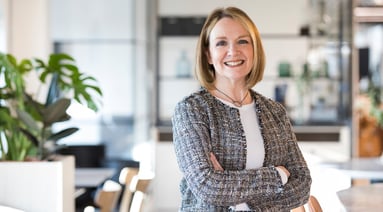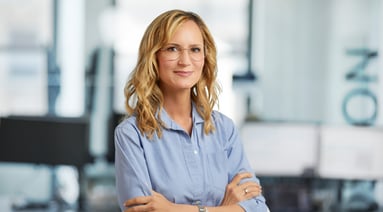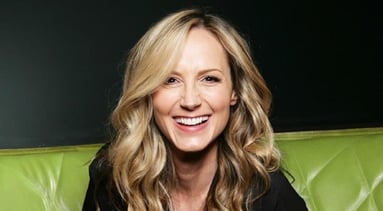-1.png?width=1600&height=933&name=CoreNet_CRE_LinkedIn-(003)-1.png)
Last month Chely Wright, Chief Diversity, Equity and Inclusion Officer at Unispace spoke on a panel at CoreNet Corporate Real Estate Week alongside diversity leaders from JLL, CBRE, and Cushman & Wakefield.
The event covered everything from the barriers to hiring diverse talent through to the impact of the Covid-19 crisis on Diversity, Equity and Inclusion (DE&I) programmes.
The panel acknowledged the growing recognition across the corporate real estate sector of the value that organisations can realise by cultivating diverse talent pipelines and creating work environments that foster inclusion.
And while creating an impactful Diversity, Equity and Inclusion (DE&I) programme isn’t easy, Chely told the audience of senior real estate professionals, “Whatever gets measured can be improved. We’re currently measuring exactly what our diverse spend is – it’s a big moment for us because it means we’ll know where we are and where we need to go next.”
As Chely explained, “We’re looking at how we can view all aspects of our activity through a DE&I lens. One piece of advice I always try to follow is ‘Know your why’. As we evangelise internally and make a case for DE&I, it’s vital we understand why a DE&I programme will make us stronger as a business – more innovative, more creative, more effective.”
DE&I initiatives need to touch all areas of the organisation
One of the key themes to emerge from the session was the importance of getting employees involved in change-making, for example, by creating internal resource groups – voluntary groups led and participated in by employees who share specific characteristics.
The panel agreed that DE&I activity needs to happen both from the ground up and the top down. Chely noted that she is considering how employee resource groups (ERG Employee Resource Groups) – usually the preserve of large multinational organisations – might be adapted to suit a 600-strong organisation such as Unispace.
Fellow panellist Nadine Augusta, Chief Diversity Equity & Inclusion Officer at Cushman & Wakefield, suggested that “The priority is to work with employees to assess where the biggest opportunities lie and then determine the way forward. When working with organisations of this size, I’ve tended to set up broader diversity resource groups or networks rather than individual employee resource groups.”
The impact of Covid-19
While the pandemic created considerable disruption to ongoing activity programmes, it also coincided with the rise of the Black Lives Matter movement, increasing awareness of diversity issues while also causing greater unrest in some organisations.
Chely predicted that “A co-mingling of crises has happened and, when we look back, we’ll see a decade of change compressed into this short period. But the crisis has also unearthed other inequities – for example, that leadership is often having a much different and frankly better experience when it comes to working from home. All of these things tend to scale up the DE&I challenges within organisations.”
Goal setting, measurement and accountability
One of the most prominent talking points to emerge was the components that make up a successful DE&I programme:
- Goal setting, measurement and accountability
- Why organisations need to agree on clear goals for their programmes
- Defined areas of responsibility for those involved
- Ongoing tracking/metrics to assess how the programme is performing against these goals.
But as Chely pointed out, “There are usually a few myths about DE&I floating around in organisations that need dispelling. For example, when it comes to recruitment, there’s the notion that there is a finite number of diverse candidates capable of doing the roles. This is a self-fulfilling prophecy – if you don’t believe there are enough of the right and qualified candidates out there, you’re more likely to look to the same old talent pool.”
The panellists highlighted several further barriers within real estate that are hampering DE&I recruitment efforts including;
- Career awareness – a need to raise awareness of the full range of possible career paths within the industry – starting at high school level
- Existing industry relationships – the ongoing problem of leaders relying too heavily on their existing industry relationships and connections when filling positions
Giving diverse talent a voice
To conclude the session, the panel was asked about how to best define inclusion and inclusivity. Chely explained that “It’s not just about everyone getting a seat at the table – it’s about making sure everyone gets the mic. Historically, it’s always been the people in power choosing whether to open the door to diverse talent. Inclusivity means having door handles on both sides of the door, so it’s not just the powerful inviting in the talent, but it’s the talent feeling they have the agency to come to in.”
Chely Wright has joined Unispace to lead our DE&I programme globally, launching key policies, partnerships and initiatives so we can progress as an organisation and real estate industry leader.


